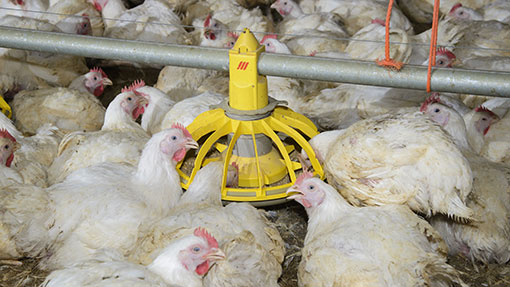German farmers face antibiotic use restriction

German livestock and poultry producers are to have antibiotics use benchmarked against other farms, and restrictions placed on those with usage deemed too high under tough new legislation.
The German Drug Act, which came into force on 1 July, requires farmers to report total antibiotics use every six months to their local authority, including type, quantity and to which animals drugs have been administered. The regulations cover all livestock types and farming systems.
Once an initial index has been created from this data, German federal states (Länder authorities) will have far greater powers to enforce use restrictions, said the Federal Ministry of Food and Agriculture.
Farmers performing poorly against this benchmark will be required to consult with veterinarians and compile a health improvement plan.
See also: Phage therapy could offer alternative to antibiotics
If a subsequent reduction in antibiotics use is not recorded, livestock farmers may be ordered to change their husbandry, animal feeding, stocking density or hygiene practices by the authorities. Continued failure to enforce changes or file records may result in fines. As a “last resort”, farmers could be banned from rearing animals.
Federal minister of agriculture Christian Schmidt said the measures would gradually reduce antibiotics use in livestock farming.
“The system of recording and drawing comparisons that will be practised as of today is intended to help minimise the use of antibiotics to what is necessary from a therapeutic viewpoint. This is and remains our goal.
“The minimisation concept will also have a positive impact on livestock farming. I am firmly convinced that the rules will benefit everybody in the end: animals, consumers, animal keepers and veterinarians.”
A spokesman for Deutscher Baunverband, the German farmers’ union, said the law had come into force before the details had been finalised. “It’s unclear exactly what farmers are supposed to do,” he told Poultry World. Despite this, a first set of records are expected to be submitted by producers before 14 January 2015.
Also of concern was the government ignoring the QS assurance scheme, which more than 90% of pig and poultry farmers are members of, which already records antibiotics use. Requiring farmers to do it a second time added bureaucracy, the spokesman added.
